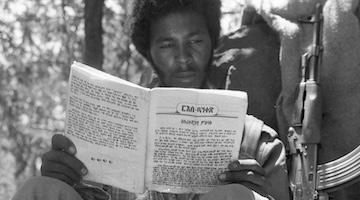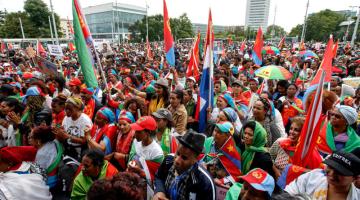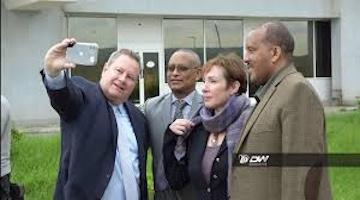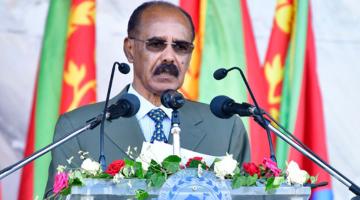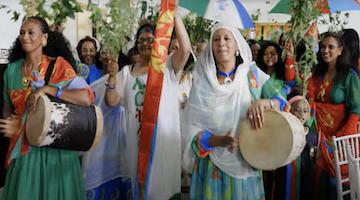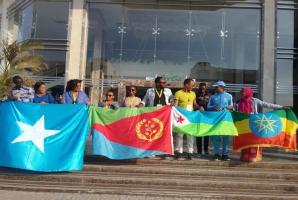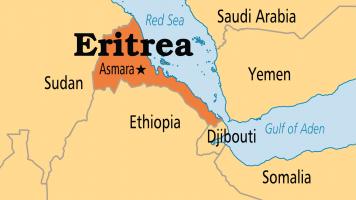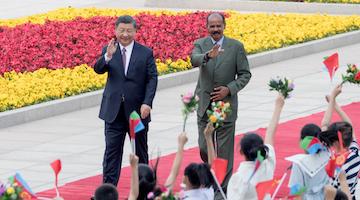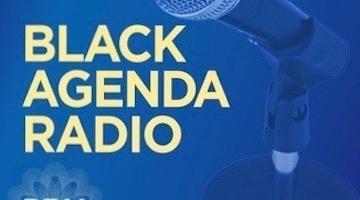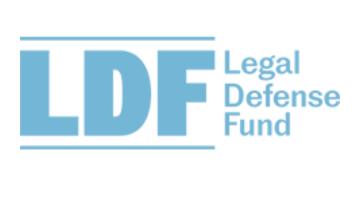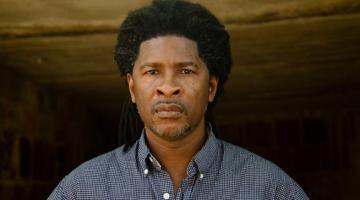Eritrea has been the target of a media campaign orchestrated by the US and its allies who act in collusion with corporate media. These narratives demonize Eritrea and seek to weaken this country which fights to remain free of U.S. influence.
During a recent trip to a popular local café in the heart of Asmara, Eritrea I met a tourist from a large Western country. As we sipped on rich, strong coffee, we discussed a variety of topics, ranging from history and the weather to culture, art, and sport. Our wide-ranging discussion also touched upon politics and the generally poor state of reporting by Western mainstream media.
It was during this portion of our extended and lively conversation that the visitor explained that they were genuinely flummoxed and increasingly troubled by how so much of the reporting and discourse that they had been exposed to prior to their arrival in our nation had been extremely negative and, as they could now clearly see and judge for themselves first-hand, blatantly wrong. It was, to use their exact words, “as if Eritrea had been targeted.” Of course, their assessment was correct: Eritrea has been targeted. In response, I first explained that they were hardly the first person that I had met or come across that had experienced such a striking contradiction. Aiming to provide a semblance of balance and clarity, I then went on to share with them the following important points.
Poor coverage of Eritrea is standard
Properly exploring, reporting, and understanding any subject, much less an entire country, requires a grasp of nuance and a commitment to providing appropriate context. However, rather than recognize and engage with complexities, the vast majority of mainstream analyses of Eritrea are often littered with simplistic sound bites that shoe-horn the country into highly generalized and unhelpful black and white contexts. This reductionist approach attempts to characterize and explain what are tremendously intricate, complex issues and phenomena (such as decades- or centuries-long histories or processes, migration, national service, regional dynamics, and conflict, among others) in terms of singular, narrow concepts.
This is similar to coverage of African nations, which is generally non-existent, or incomplete, or completely fails to mention the frequently major Western role in causing many of the continent's problems.
Ultimately, the result is that mainstream coverage of Eritrea (and the African continent) is – and has long been – invariably characterized by tired clichés, nauseating stereotypes, facile assumptions, and gross distortions that fail to provide an even vaguely accurate or reliable account of the country and its objective on-the-ground realities.
Here it is worth adding the quite remarkable fact that when it comes to Eritrea, mainstream organizations and media seem to only hold up Westerners as experts and authoritative voices, although these individuals frequently cannot speak the languages of or have never actually set foot in Eritrea. Astonishingly, Western media and organizations unwaveringly persist in holding these individuals up as experts and leading authorities despite the fact they “boast” a long track record of only highly flawed assessments and wildly inaccurate predictions. At the same time, thoroughly qualified and highly experienced individuals from Eritrea are rarely looked to for their views or analyses of their own country. It is very difficult, nigh on impossible, to fully understand Eritrea without actually speaking to Eritreans or genuinely considering their views.
Eritrea is in the crosshairs because of its defiance and independence
Another critical point to understand is that mainstream coverage and treatment of Eritrea have very little to do with alleged transgressions of international law or violations of principles of justice, democracy, and human rights. Of course, this is not to suggest that Eritrea is free of issues. It is not. The country is confronted by myriad significant issues, challenges, and pressing concerns. However, these are hardly the major– or even the minor – reasons for the calumny steadily directed at Asmara, charging it with everything vile and attempting to ostracize and isolate it.
The leading reason Eritrea is targeted with righteous condemnation is because it has committed the supreme crime: defying Western hegemony. It remains proud and unbowed, and it has long striven to strike a self-reliant path and retain close control of its development agenda. It seeks genuine partnerships with all and is fiercely protective of its independence and sovereignty. Eritrea has declined collaboration with AFRICOM, while it has long turned down foreign aid from international financial institutions, mainly in order to avoid saddling itself with mountains of debt and inducing debilitating dependency on its people. Moreover, Eritrea firmly demands a fair price from international corporations within agreements on its abundant natural resources. The country’s unwavering commitment to its principles challenge long held doctrines and orthodoxies espoused by the Western development and aid establishment and their financial architecture.
If transgressions of international law or violations of high-minded ideals and values were the true, fundamental issue, it is likely that a whole host of others, possessing far worse records, would be singled out first, instead of being tolerated with equanimity or even, at times, given tacit approval, if not outright encouragement, by those targeting Asmara. Furthermore, it would be easier to take Western journalists’ supposed concerns for “oppression” or “tyranny” more seriously if they evinced any similar interest in the far greater infringements and abuses of their own governments.
Further proof that Eritrea is targeted is the absolute lack of balance, both in terms of errors and angles. Regarding the former, it is widely expected that media and analysts will make errors. But while mistakes are to be expected, they should occur in different directions (occasionally positive and occasionally negative). Instead, in reporting about Eritrea, errors tend to occur in only one direction: negative and damaging to the country. When mistakes repeatedly occur and always in the same direction, they stop being mistakes and instead represent evidence of efforts towards a larger agenda. In terms of angles, Western media sensationalize, exaggerate, and solely focus on negative aspects about Eritrea, all the while ignoring relevant challenges and downplaying or completely omitting positive developments in the country (and there are many).
For those possessed by a messianic conception of themselves as the rulers and saviors of the world, who have long been used to monopolizing control over others’ resources, imposing conditionalities, and firmly holding inordinate influence over the decisions made in developing countries, especially in Africa, Eritrea represents a threat. It must be publicly flogged for its impertinence and its defiance of Western dictates.
Although the fact that Eritrea is young, relatively small, and developing would seem to suggest that it poses no threat, these characteristics, in fact, are among the driving factors behind why it is targeted. Along the lines of Noam Chomsky’s “rotten apple theory”, it follows that the tinier and weaker the country, the less endowed it is with resources, the more dangerous it is. If even a supposedly marginal and impoverished country can defy the global hegemon and begin to utilize its own limited human or material resources to undertake programs of development geared to the needs of the domestic population, then others may ask: why not us? Thus, this “threat” must be snuffed out, lest its example spread to others.
Dr. Fikrejesus Amahazion is a researcher and analyst based in East Africa.

